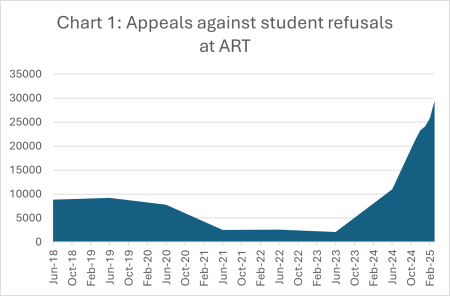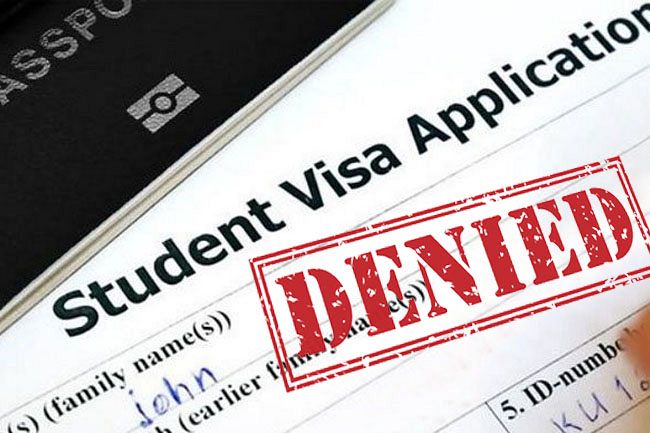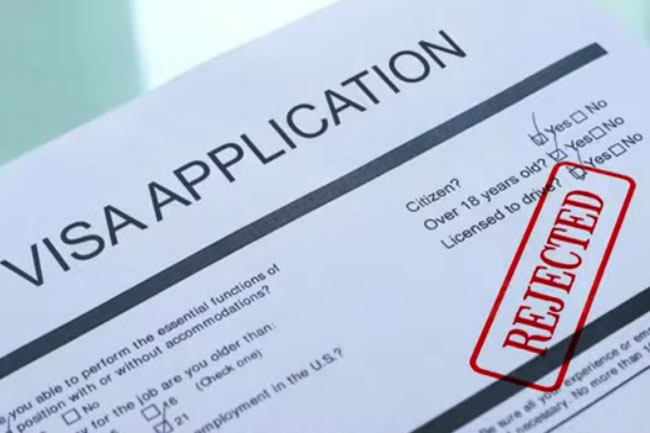The Administrative Review Tribunal is struggling to cope with a high rate of appeals while dealing with a rapidly increasing backlog. Dr Abul Rizvi reports.
GOVERNMENT POLICY to accelerate student departures and thus reduce net migration is being thwarted by a high rate of appeals to the Administrative Review Tribunal (A.R.T.), where there is a high set aside rate for such refusals. The high rate of primary onshore refusals is based largely on subjective criteria and thus open to being overturned by the A.R.T.
The A.R.T. does not have anywhere near the level of resources needed to keep up with such a high rate of appeals, so the backlog continues to grow.
In March 2025, the backlog of appeals against onshore student refusals at the A.R.T. increased by 3,654 to a record 29,508 (see Chart 1). With around 850,000 students in Australia, appeals against student refusals will remain strong.

Appeals against onshore student cancellations (usually where a student is found to be in breach of visa conditions) increased by 60 to 893. The overall migration (non-asylum) backlog at the A.R.T. increased to a record 46,371. When added to the asylum backlog at the A.R.T., the overall backlog is now almost 90,000 and will likely hit 100,000 in the next few months.
The rapidly increasing A.R.T. backlog, together with a bridging visa backlog of almost 380,000, record numbers of working holidaymakers, temporary graduates and skilled temporary entrants, as well as record backlogs for a range of permanent migration visas highlights why Treasury’s forecast of a massive increase in departures to bring down net migration in 2025-26 and 2026-27 just won’t happen.
Departures will rise, but just not as fast as Treasury is forecasting.
The crucial question is how the second Labor Government will now respond to the situation. Hopefully, it won’t revert to the discredited and chaotic student caps or to simply ramping up visa application fees. A more holistic strategy that focuses on carefully explained public policy objectives is desperately needed.
Dr Abul Rizvi is an Independent Australia columnist and a former Deputy Secretary of the Department of Immigration. You can follow Abul on Twitter @RizviAbul.
 This work is licensed under a Creative Commons Attribution-NonCommercial-NoDerivs 3.0 Australia License
This work is licensed under a Creative Commons Attribution-NonCommercial-NoDerivs 3.0 Australia License
Support independent journalism Subscribe to IA.

Related Articles
- Both major parties face dilemmas with 2025-26 migration program
- Zero chance for Dutton to achieve net migration target
- Net migration to be key election issue
- Working holidaymakers contributing strongly to net migration
- Dutton's permanent migration target another broken promise











